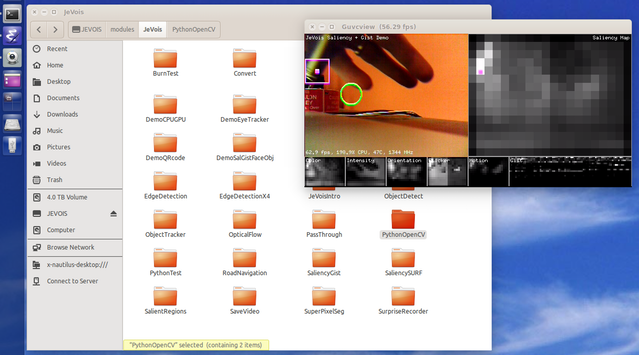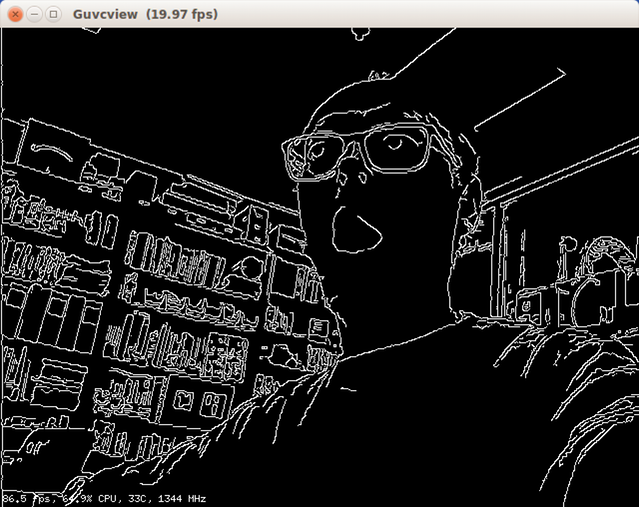|
JeVois
1.23
JeVois Smart Embedded Machine Vision Toolkit
|
|
|
JeVois
1.23
JeVois Smart Embedded Machine Vision Toolkit
|
|
JeVois 1.1 brings two main new features:
It was tough and has required quite a bit of Linux kernel hacking and fooling around with our trusty LeCroy USB packet sniffer to get the bugs out, but it seems to be working flawlessly with Windows, Mac, and Linux hosts now. This means that you can now directly edit config files, install new machine vision modules, copy training data for your modules, etc to JeVois without ejecting the microSD card and while JeVois is running. There is no slowing down of the video even when you copy large files to microSD because the video stream is allocated a reserved bandwidth on the USB bus (isochronous).
Here is an example where we browse the JeVois modules on the microSD inside JeVois, accessing it over the USB link, while streaming video at the same time:

However, being able to switch through various vision modules while changing the contents of the microSD poses some potential data consistency issues, hence, for now, we have restricted this to only allowing file access while not streaming video.
Great news for all Python enthusiasts: JeVois now supports full python 3.5 including the python bindings to opencv 3.2.0. This means that you can now write machine vision modules for JeVois in Python, using both the API exported by JeVois for handling of camera and USB video frames, and the OpenCV python API. Check out this demo edge detection module written in Python and using the Python OpenCV Canny edge detection function, here working inside the JeVois camera:

86.5fps at 640x480 on the JeVois camera and written in Python? Yes indeed!
Taken together both of these improvements should facilitate rapid development and prototyping on JeVois: Edit a python module directly on the JeVois microSD exported to your host computer as a virtual flash drive, then just select the corresponding video resolution in your video grabbing software to see the results.
We expect this will allow many users to learn OpenCV with Python directly on JeVois.
We created Ubuntu packages for the following:
As jevois-sdk-dev brings all the others as dependencies, getting up and running with JeVois development now just means one apt-get install command.
sync, date, restart, usbsdinfo in the command-line interface now reports the current video mappingsetcam presetwb 9rebuild-platform.sh now supports 3 install targets:
--staging - install to microSD staging area, for later flashing to microSD--microsd - install to /media/username/JEVOIS/ which could either be a mounted JeVois microSD, or a live JeVois camera exporting its microSD over USB.This should significantly facilitate the development cycle: no need to install/eject the microSD card anymore, just compile and install directly to it while it is in JeVois.